32 ways to destress your cat
Here are some simple ways to destress your cat if they struggle with anxiety — and we promise they'll thank you for it!
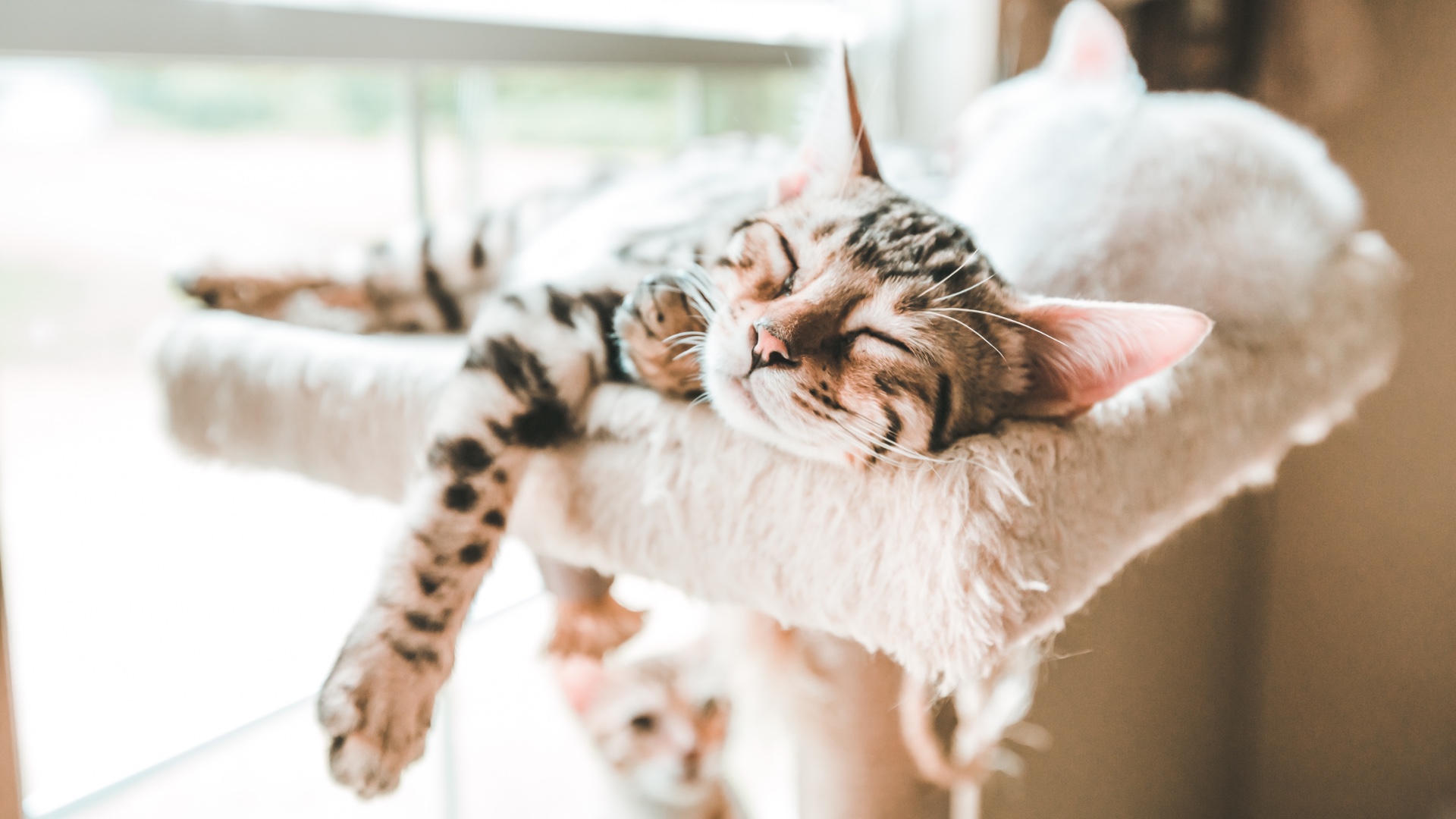
Get the best advice, tips and top tech for your beloved Pets
You are now subscribed
Your newsletter sign-up was successful
Looking for ways to destress your cat? Our feline friends are super sensitive little creatures and it doesn’t take much to make them feel anxious, so having a few tips and tricks up your sleeve for those times when your kitty is in a less than calm state can be really helpful.
While it may seem strange to think your cat would struggle with stress, anxiety in cats is much more common than you might think. Although having a supply of the best interactive cat toys on hand is one way to offer them some relief, there are so many other things you can do to help make day-to-day life easier for your beloved bundle of fluff.
Stress and anxiety can have many causes, so if you’re at all worried about sudden changes in your cat’s behavior, we recommend getting them checked out by a vet. They’ll be able to rule out any medical issues that could be hurting your cat’s mental health. But in the meantime, here are some simple things you can start doing today to lower your cat’s stress levels.
1. Invest in quality cat food
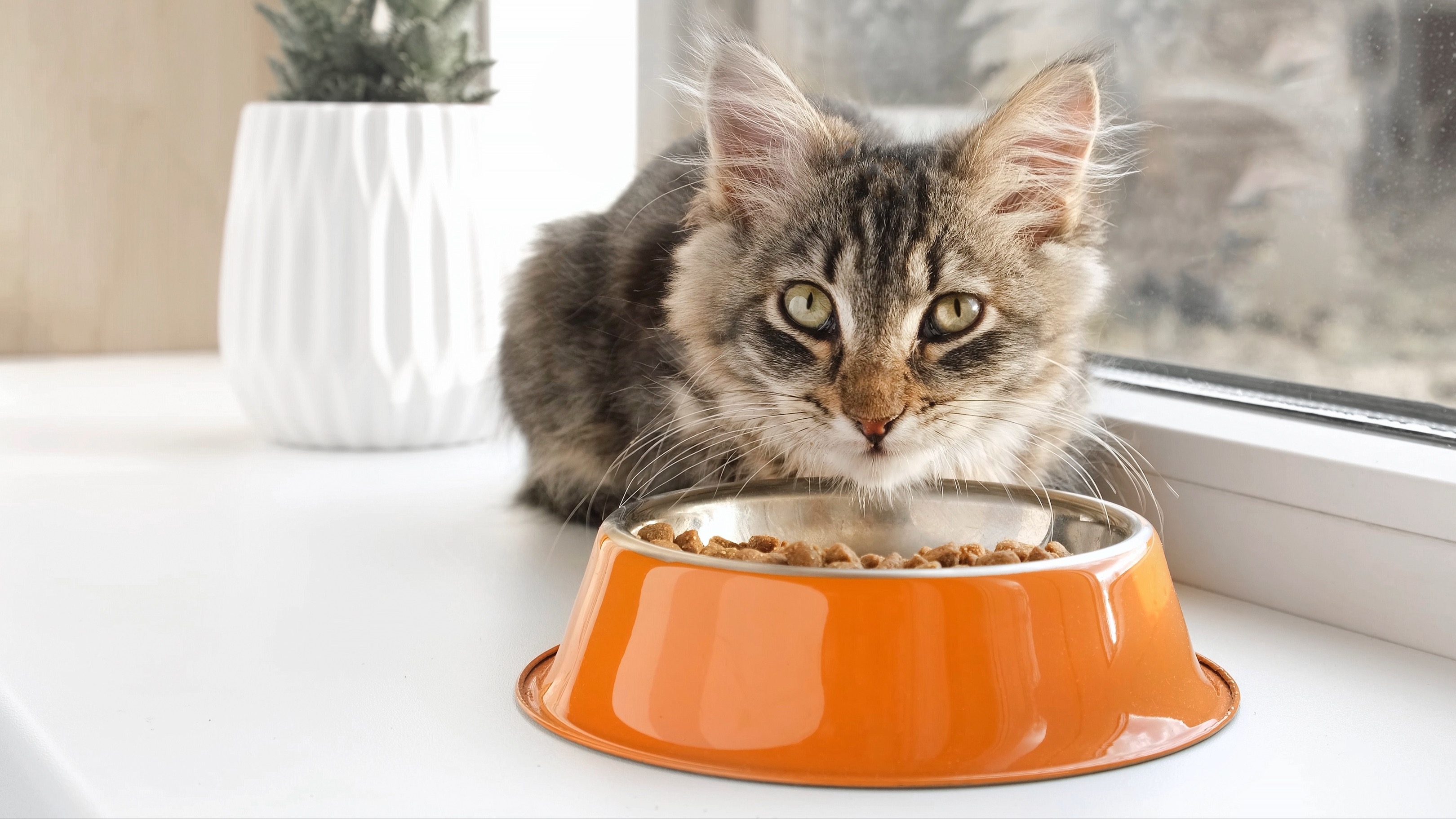
It’s important to feed your cat the highest-quality food that you can afford. Whether it’s the best dry cat food or a wet food alternative, choosing a product that offers complete and balanced nutrition will ensure your fur friend thrives. We recommend measuring out food portions rather than free-feeding, as this will help prevent weight gain.
2. Minimize scents
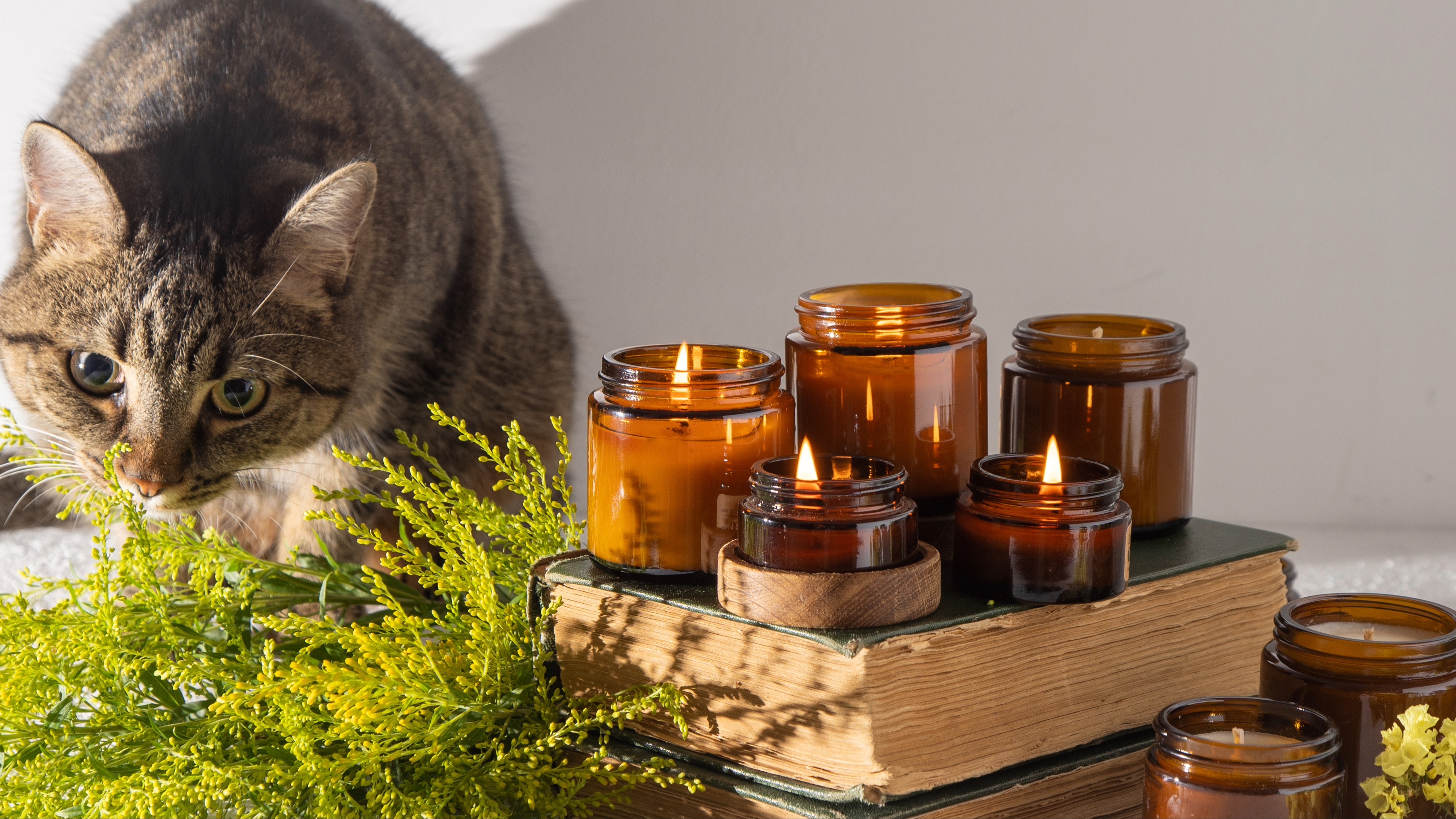
Did you know that lots of essential oils are toxic for cats? It’s true! Lavender, lemongrass, sandalwood, and rosemary are just some oils that aren’t safe for cats to be around. Beyond that, cats like to mark their environment using their scent glands — if those compete with other fragrances in the home (including cleaning products) it can cause stress and anxiety.
3. Lower the volume
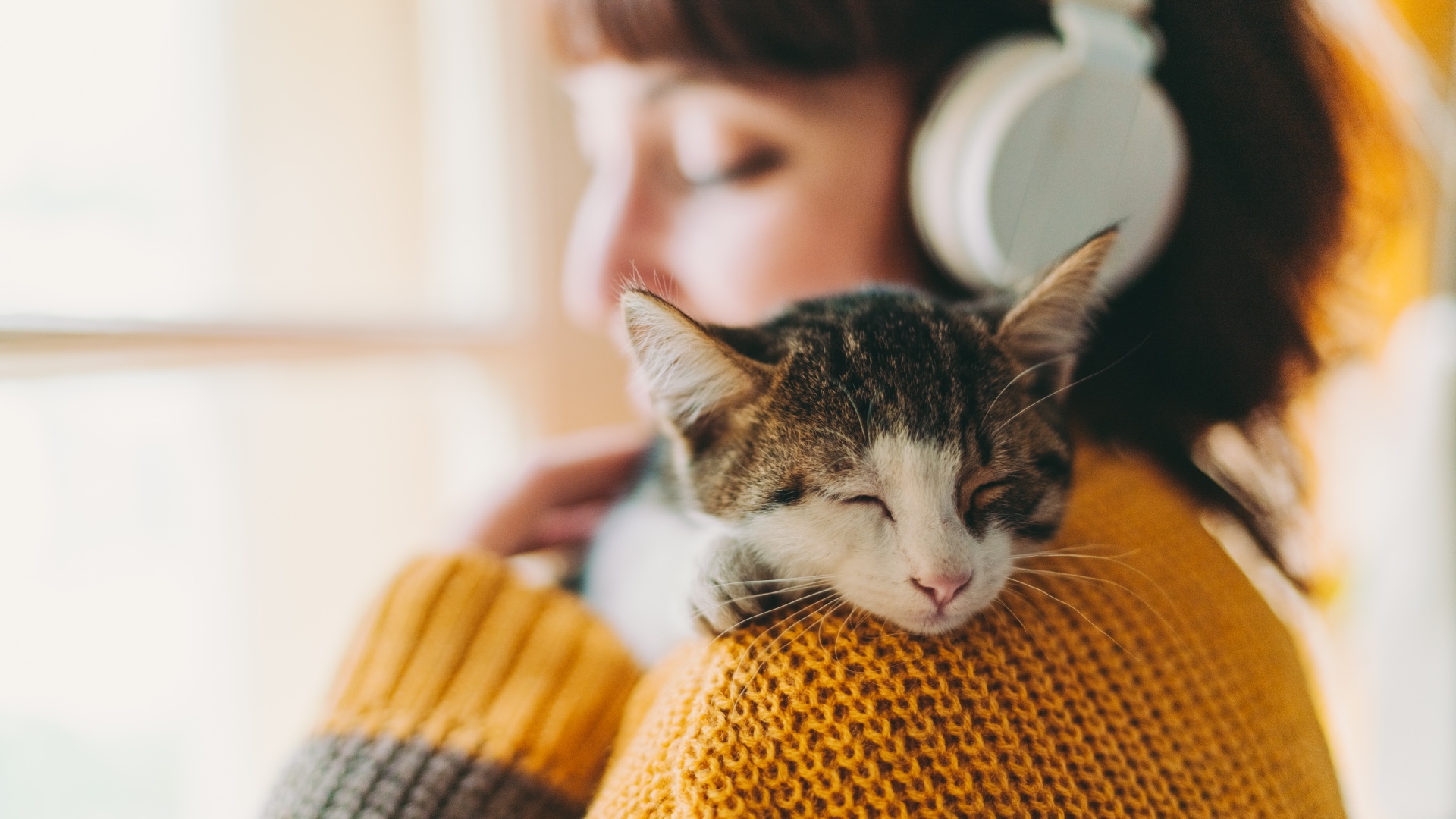
If you’ve ever turned the vacuum cleaner on only to have your cat put their ears back and flee from the room, then you know how sensitive our little fur friends are to loud noises. If you want to ensure your kitty is displaying all the signs of a happy cat, try and keep loud noises to a minimum — or, at the very least, ensure they have a quiet space to retreat to.
4. Provide multiple litter boxes
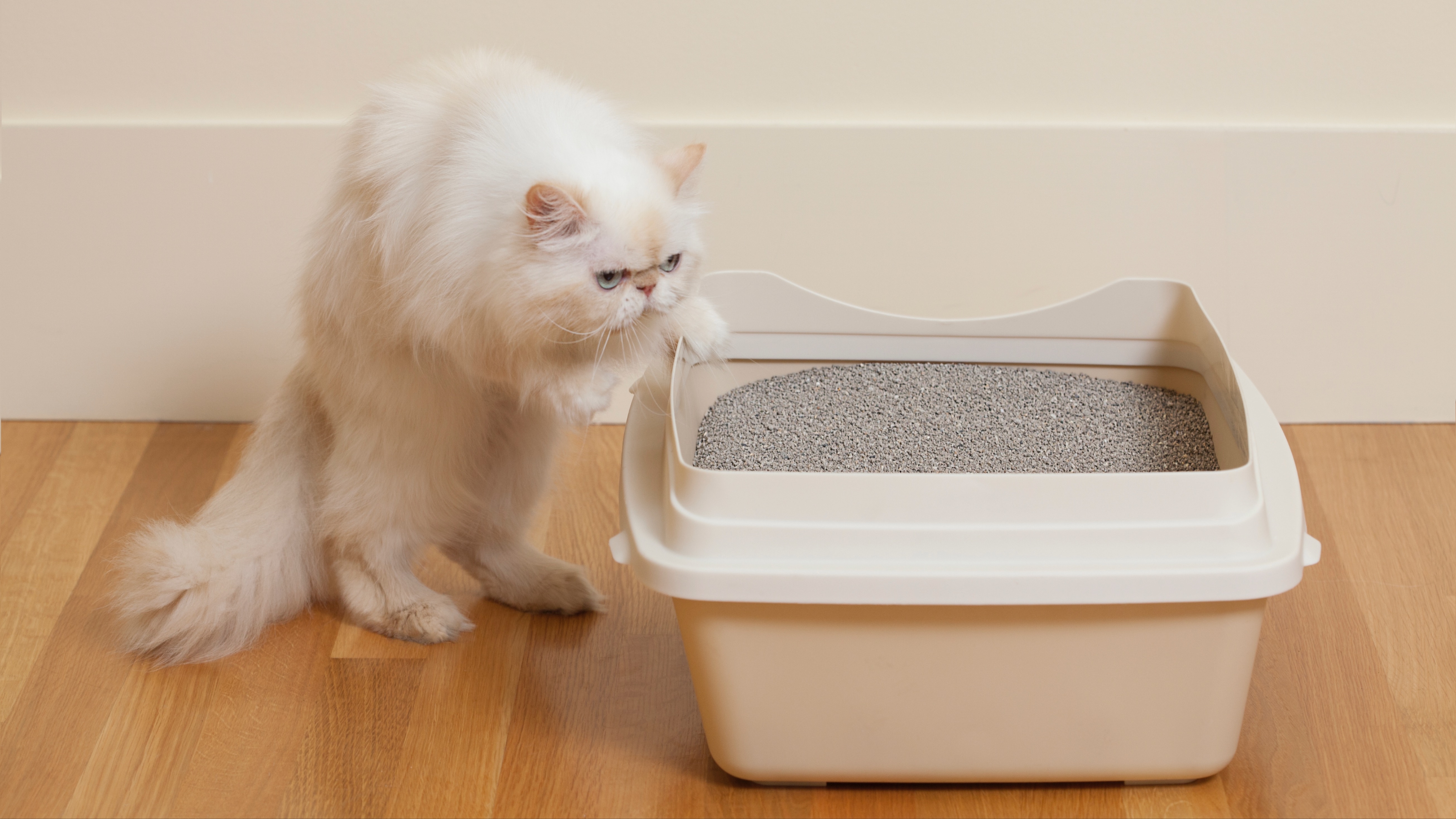
While you may have already invested in the best cat litter box, it’s worth bearing in mind that vets tend to agree that you need one litter box per cat plus at least one extra. So, if you have one cat, that’s two litter boxes, if you have two cats, you need at least three. This ensures there’s always a litter box nearby and it prevents competition and stress in multi-cat households.
Get the best advice, tips and top tech for your beloved Pets
5. Ensure your cat has access to fresh, clean water
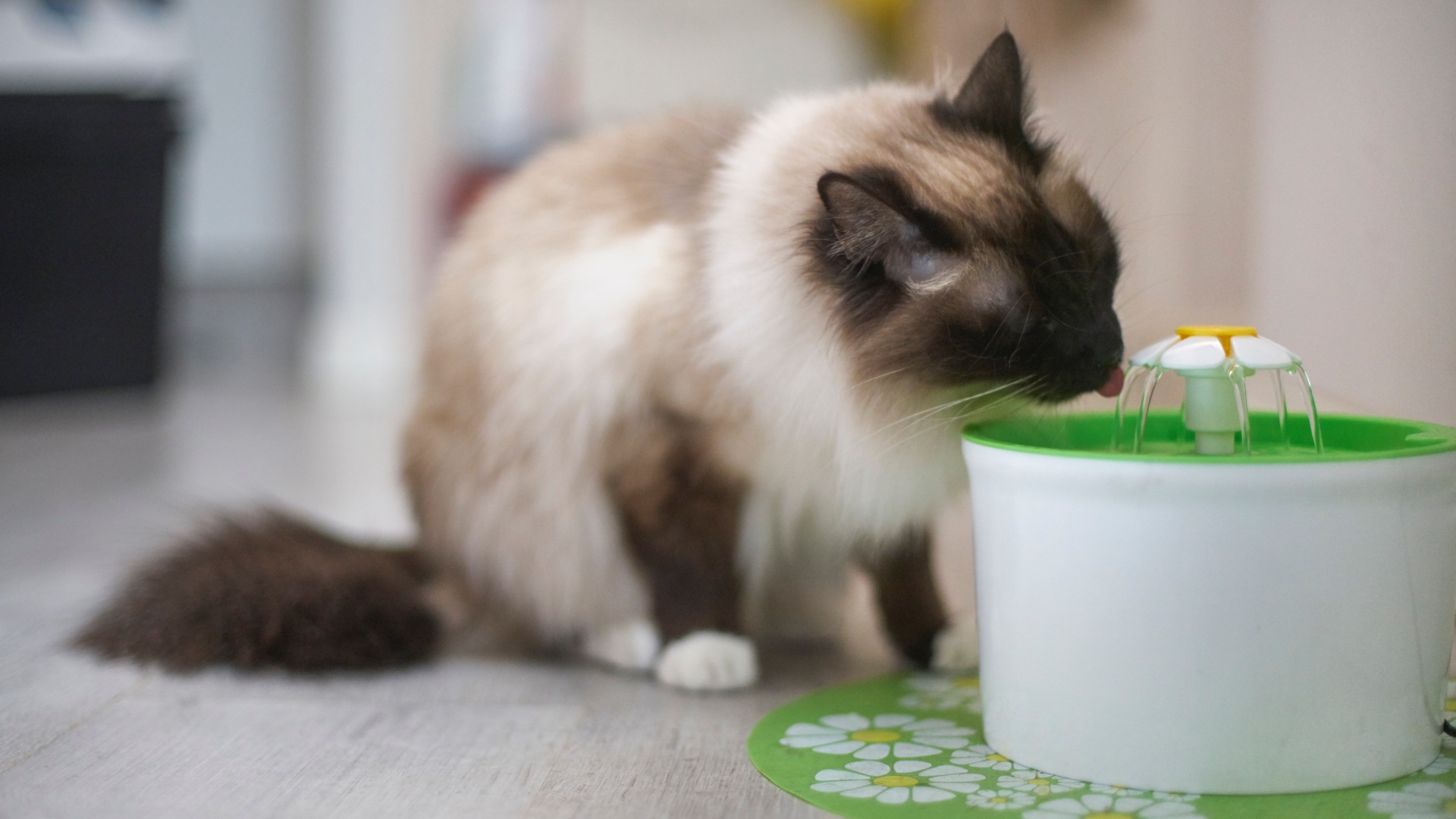
Dehydration in cats is a huge problem and while it can be caused by various health issues, often it’s a result of not having easy access to clean water. Dehydration can contribute to stress, so be sure to encourage your cat to drink by providing multiple bowls around the house — you can always feed them the best wet cat food, that is moisture-rich to ensure they’re getting the fluid they need to thrive.
6. Put up some perches
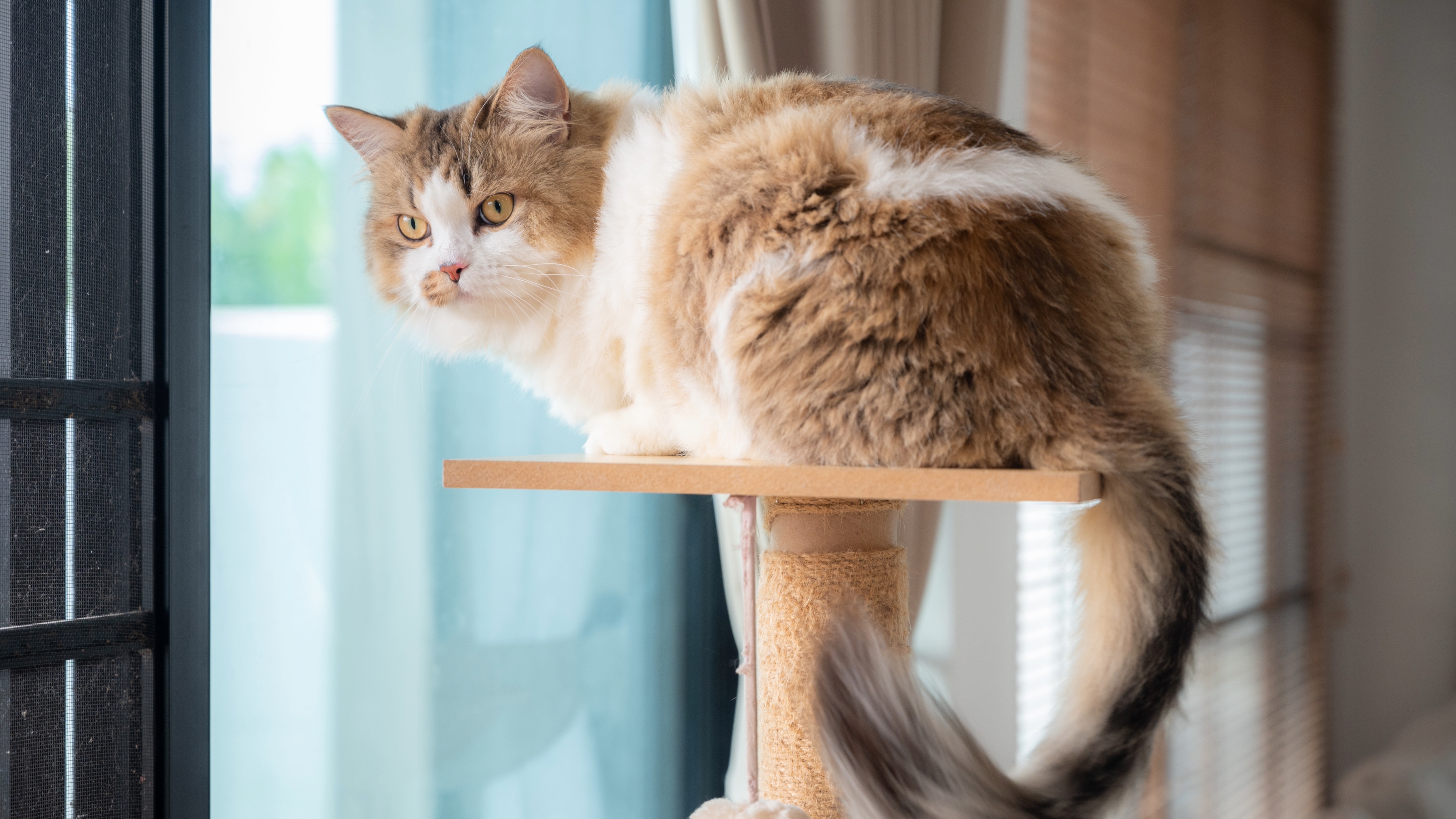
Most cats love being up high, so ensuring you have one of the best cat trees, windows, or wall perches around your home is a great way of providing them with a place to destress and watch the world go by. Because cats are both predators and prey, perches are also a wonderful way to help them feel safe.
7. Give your cat a safe space to hide
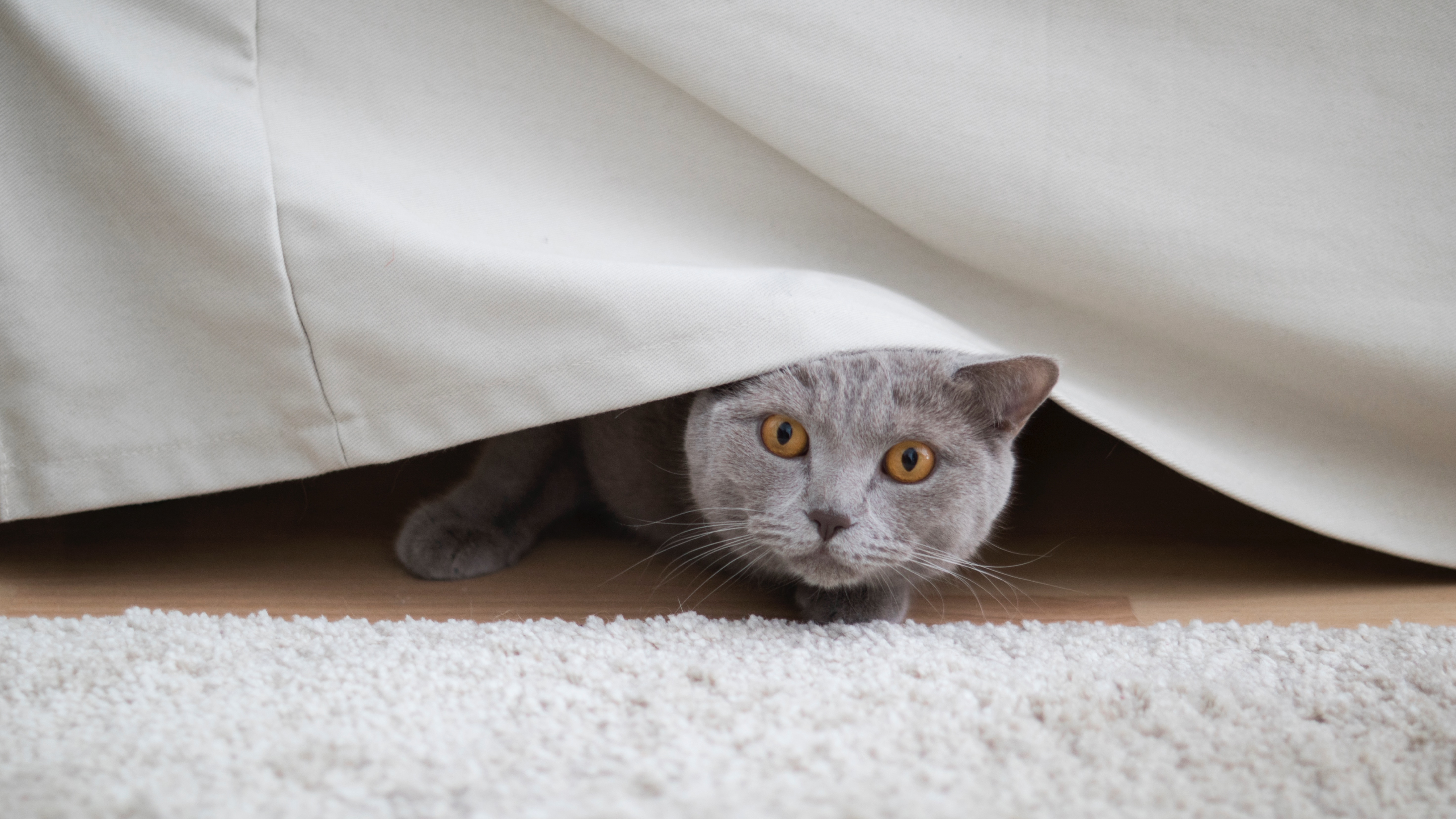
Living with humans can be stressful for our little fur friends at times, especially if your house has children or is generally filled with hustle and bustle. While some breeds will thrive in busy environments, others need a quiet place to retreat to when they need some time alone. Regardless of whether your cat is extroverted or introverted, a little hideaway they can call their own is essential.
8. Try a calming diffuser
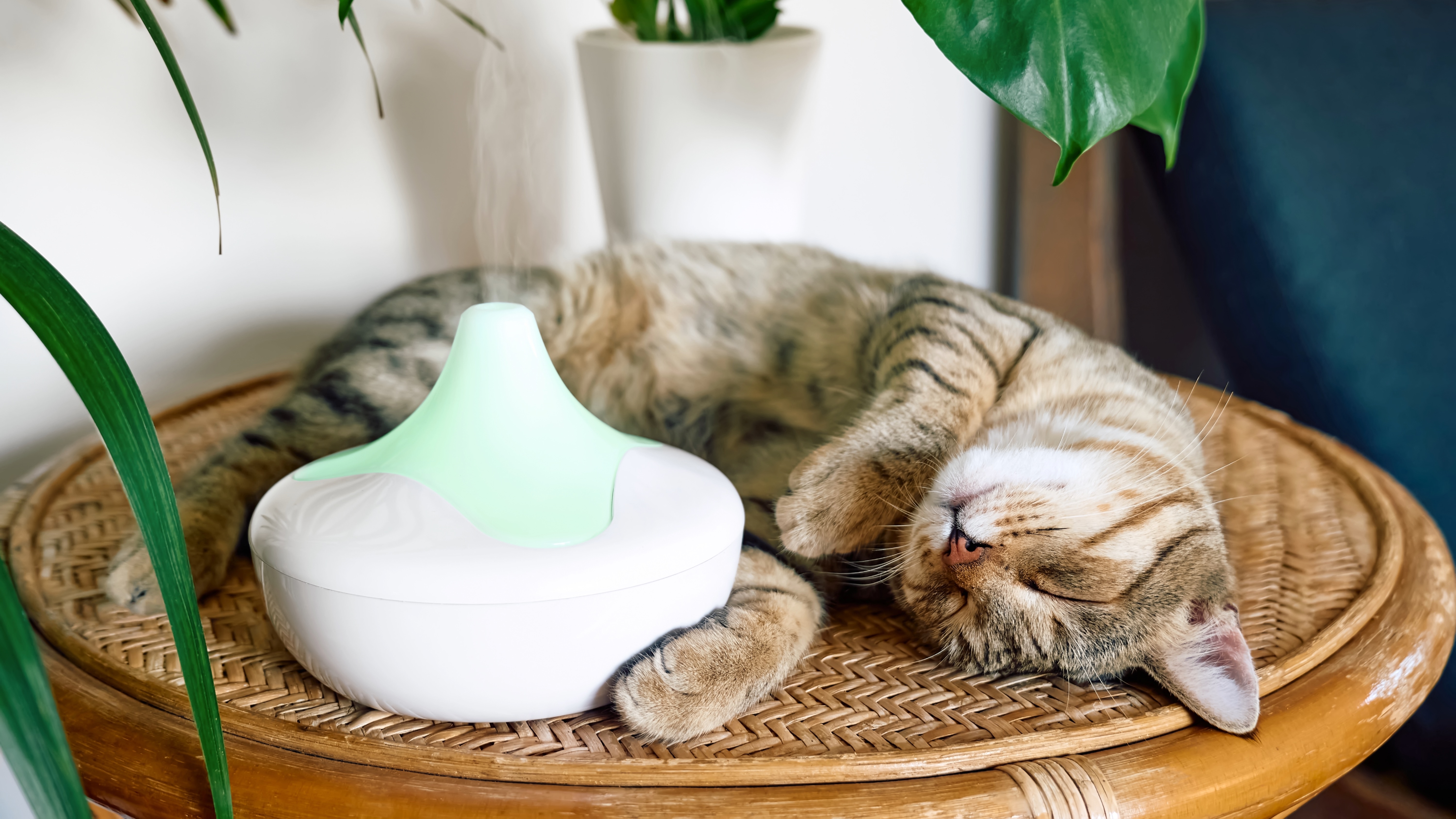
Pheromone products for cats can be very effective when it comes to reducing stress and anxiety, so it’s well worth giving them a try. Some can be sprayed onto bedding while others are plug-in diffusers. Either way, these calming products mimic a cat’s facial pheromones and help them feel safe, secure, and relaxed.
9. Establish a scratching area
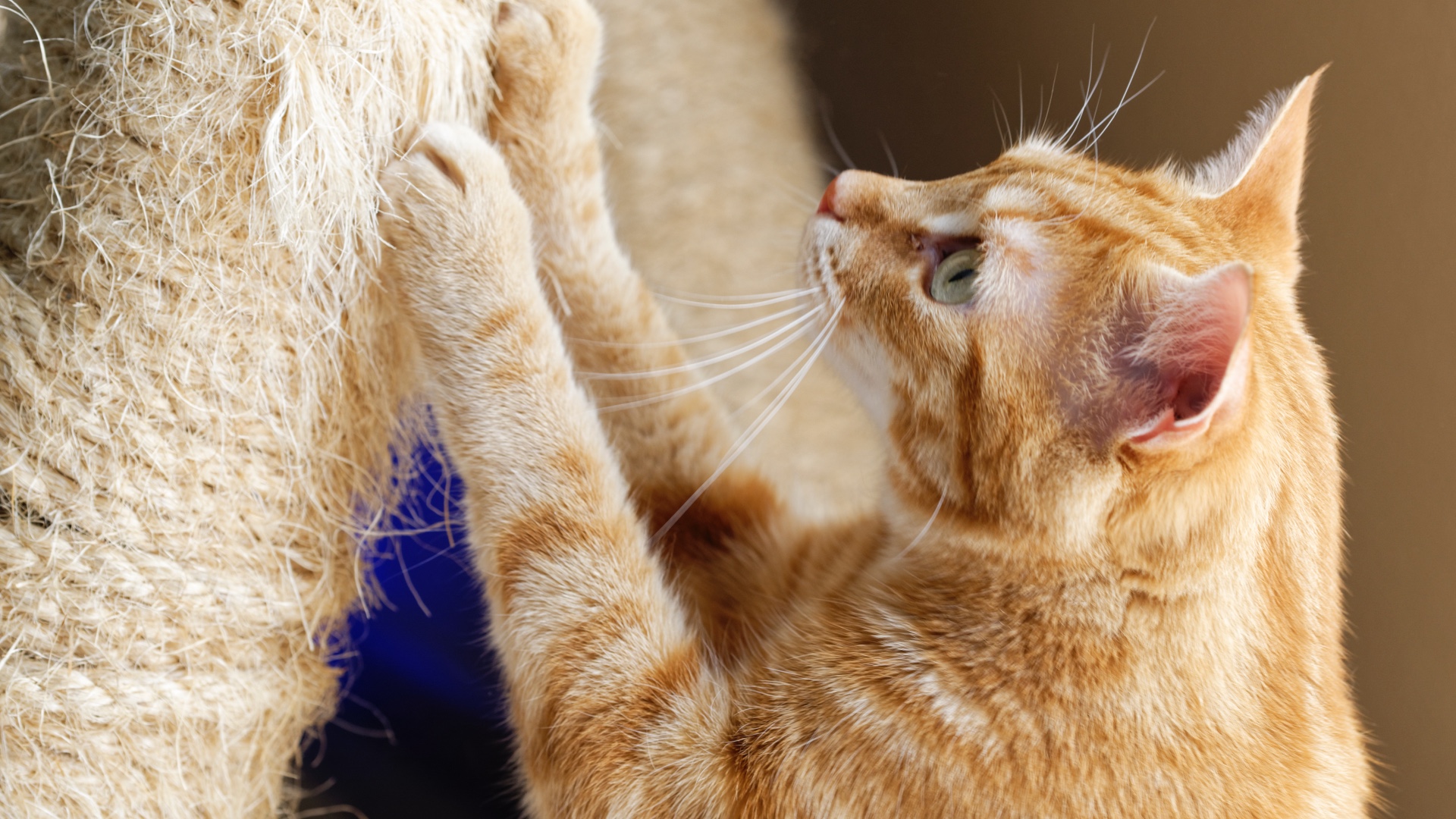
Having one or two of the best cat scratching posts in your home is an investment well worth making. Not only will providing your kitty with a designated space to stretch and sharpen their claws save your furniture, it's also a wonderful stress-relieving activity for them (and vital for nail health too!)
10. Play with your cat regularly
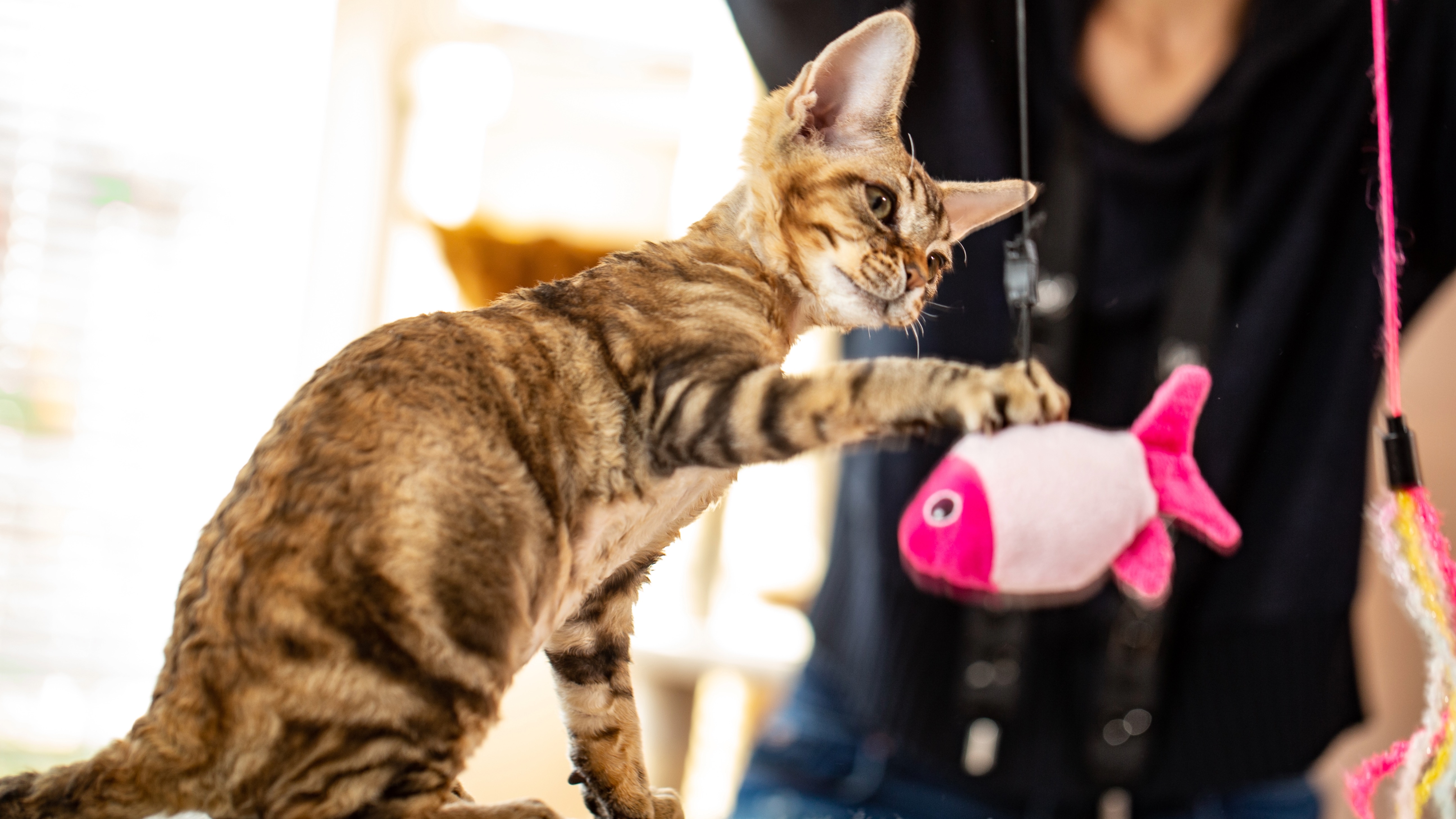
Learning how to play with a cat has so many benefits. It provides your feline friend with a ton of mental and physical stimulation, brings out their natural hunting instincts, banishes boredom, relieves stress and helps to strengthen your bond too!
11. Avoid sudden changes to their routine
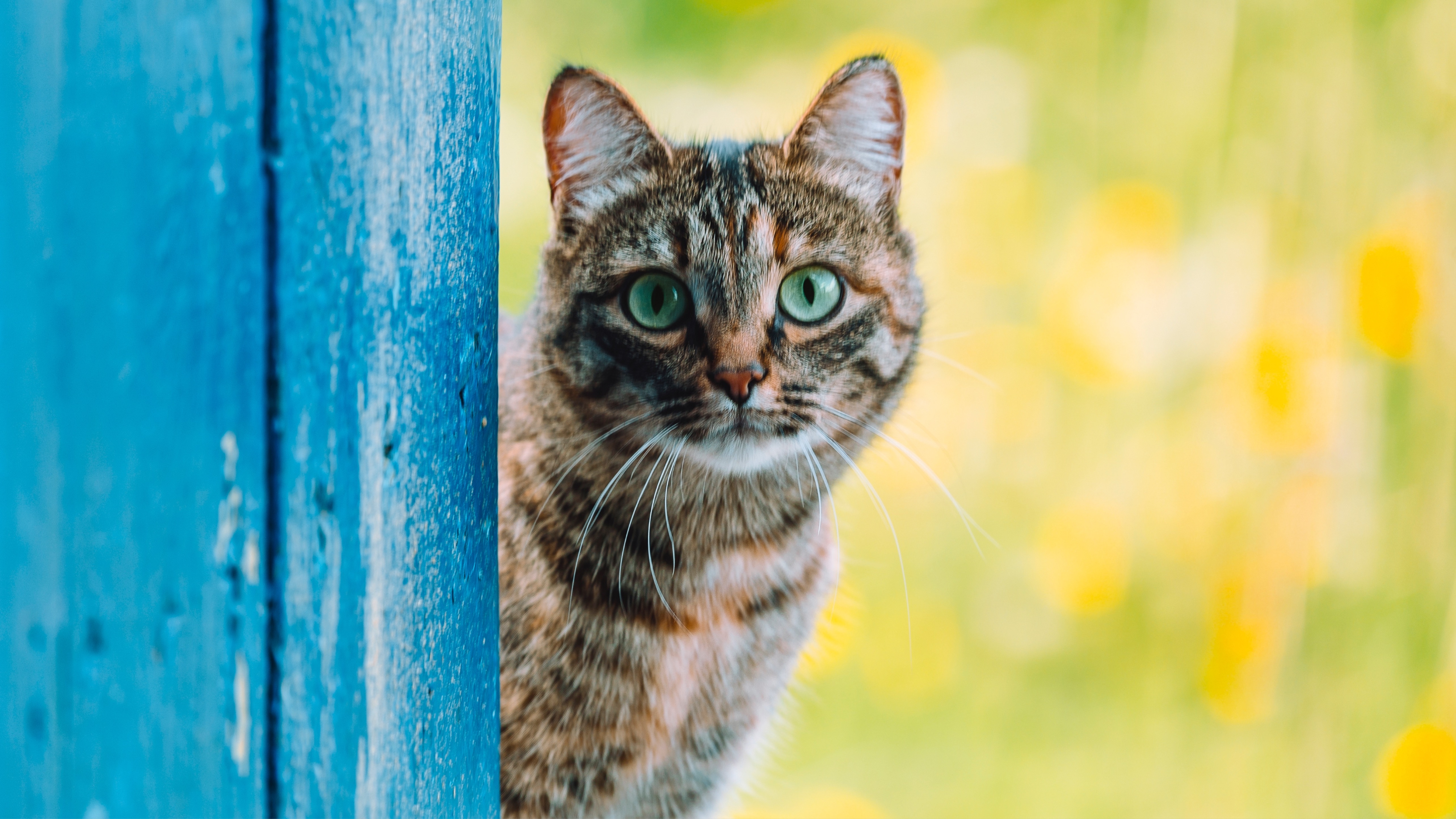
Cats thrive on structure, so sticking to a routine each day lets them know what they can expect and helps to keep them calm. Whether you’re playing with them using the best automated cat toys or you’re dishing them up their favorite meal, try to do these things at roughly the same time each day to minimize stress.
12. Plan any changes to their environment carefully
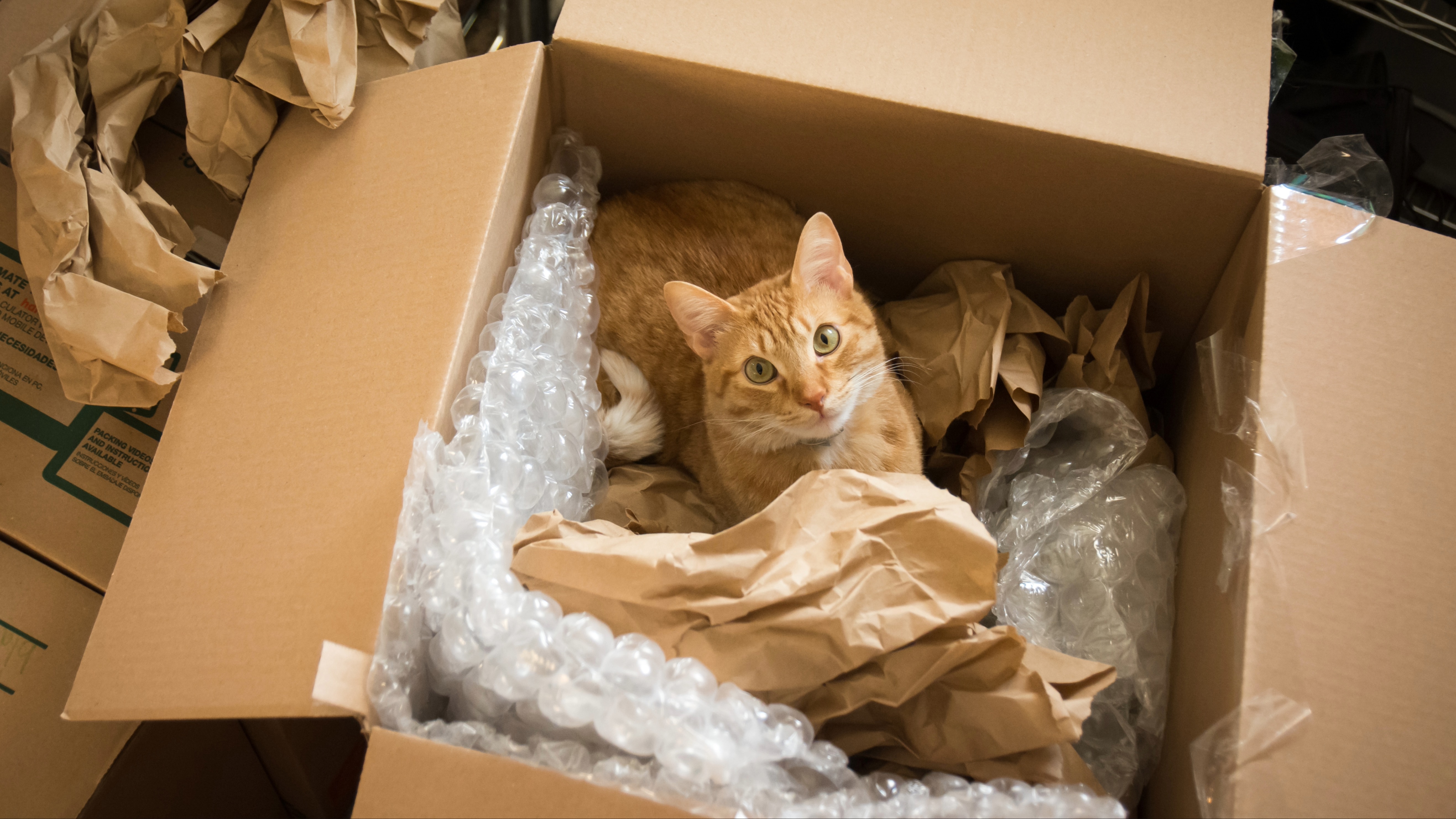
There are few things a cat hates more than changes to their environment. Moved the litter box? Doing renovations? Have guests staying over? All of these things can cause your cat to feel anxious. If you need to make changes, try to do this slowly to give them time to adjust.
13. Give them plenty of attention and affection

While they may seem aloof and independent at times, most cats adore their humans far more than you may realize. Giving your cat plenty of affection in a way that they enjoy and lots of attention when they’re coming to you in search of that, will go a long way in ensuring they stay happy and healthy. You might even want to learn how to give a cat a spa day!
14. Handle your cat with care

While the most affectionate lap cat breeds may adore being picked up and cuddled, others aren’t so keen on being handled. Whatever the case, you want to make sure you always handle your kitty carefully to avoid hurting them. This usually entails placing one of your hands under the cat's body and behind the front legs. The other hand needs to support the back legs and hind quarters. When you lift them, keep them close to your chest and ensure the hind quarters are supported in the crook of your arm.
15. Respect their boundaries
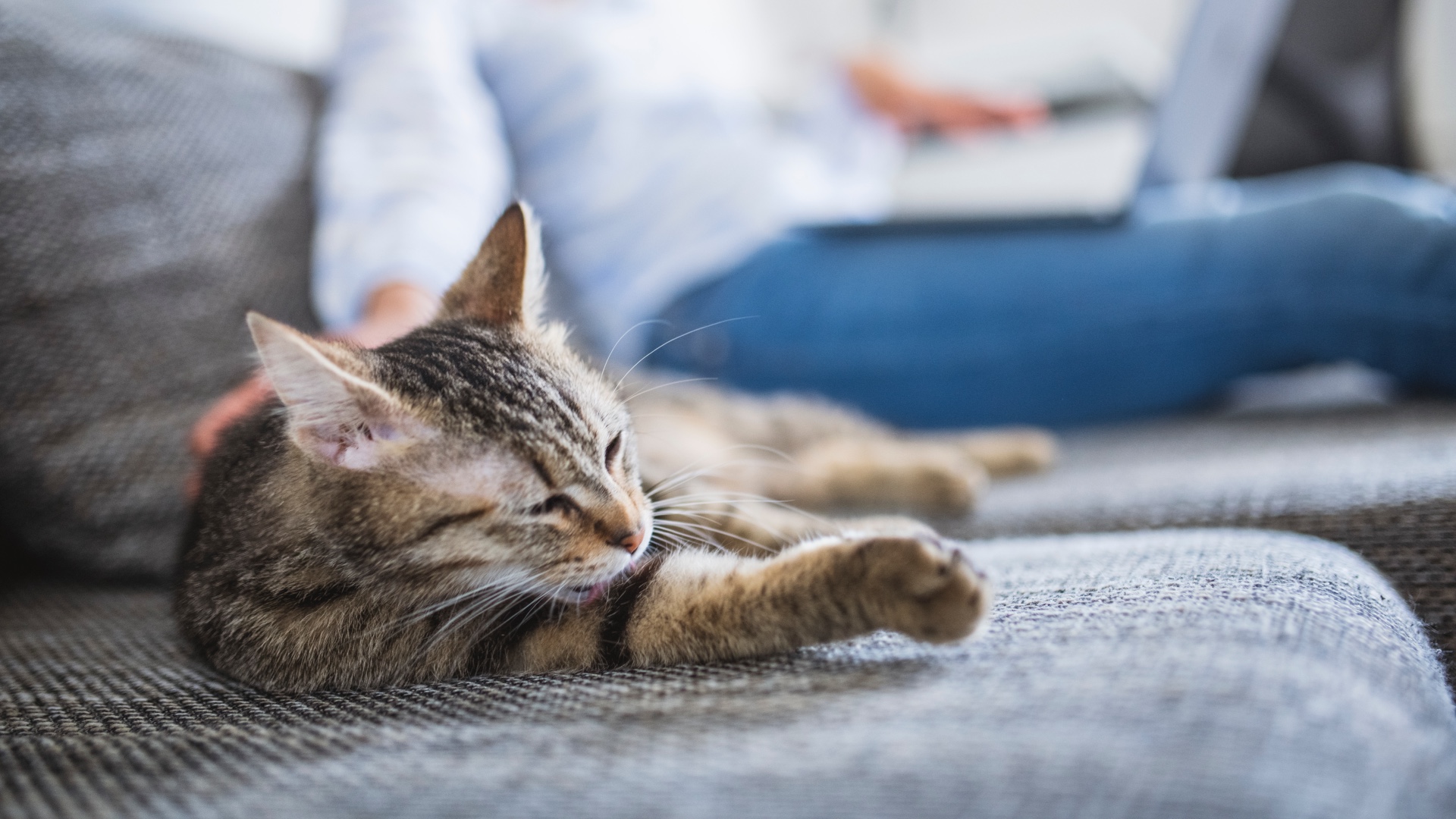
Just like us, cats have boundaries too and it’s important that we’re respectful of those. Read up on cat body language so that you can understand what your feline friend is communicating to you. For example, a happy cat tends to be a relaxed cat. That means their tail will typically be up and in the question mark position and they may roll over, expose their belly and purr. On the other hand, a stressed cat may hide away or over-groom. Being aware of these signs will ensure you and your cat co-exist peacefully.
16. Avoid cleaning all your cat's toys and bedding at once

It may sound weird, after all, cleaning all your cat’s toys and bedding together is a lot more effective than doing a few bits here and there, right? Well, yes but unfortunately, having their scent stripped from all their belongings at once can be super stressful for cats. Try to rotate the order in which you wash items that are precious to your cat, that way there are always toys and bedding available to them that contain their familiar and comforting scent.
17. Give them time to adjust to new things
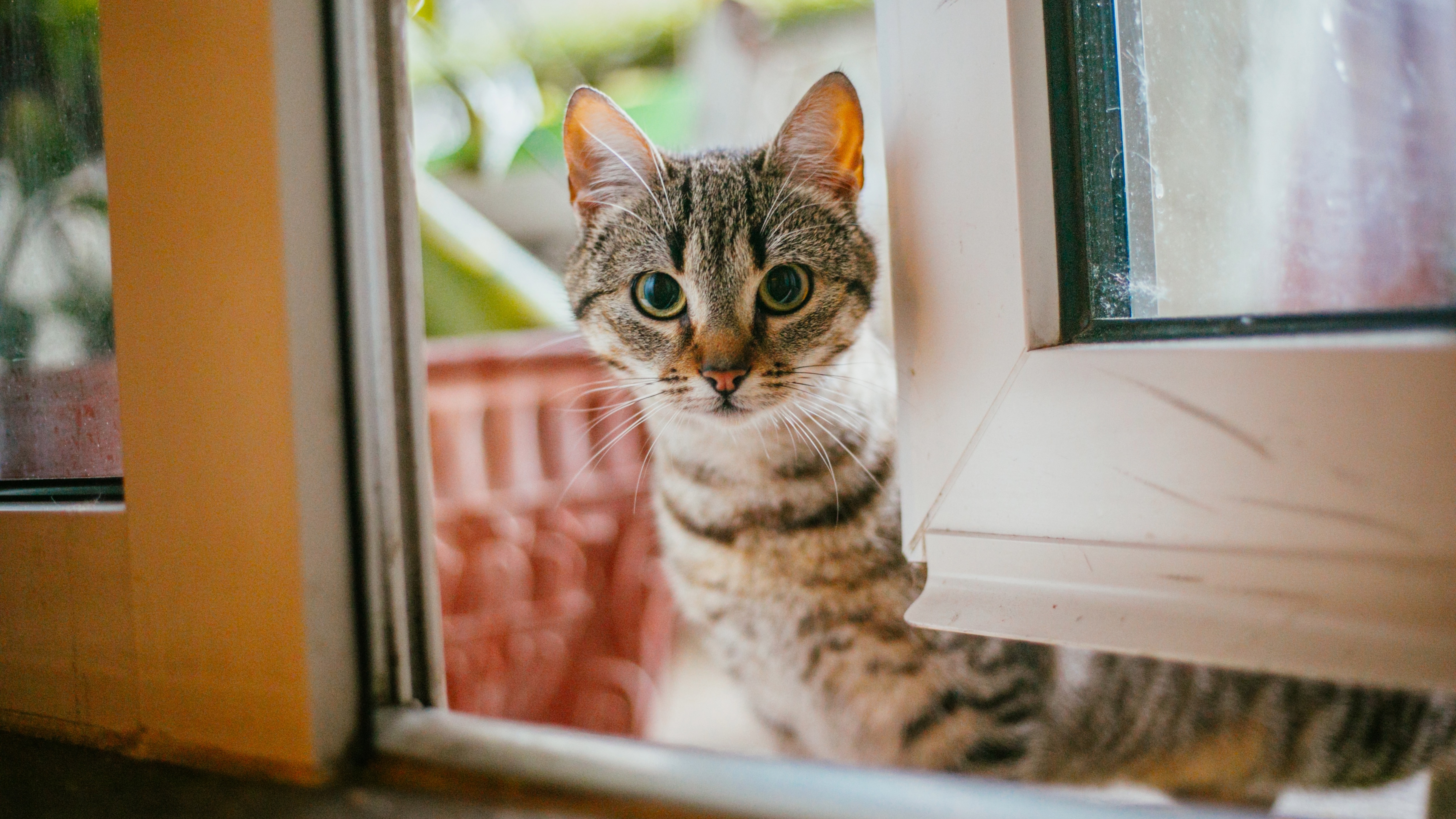
Because cats thrive on having a predictable routine and a familiar environment, they’ll need time to adjust to change. If there’s a new baby in the house, you move into a new home, get another pet, or simply need to move their food bowl to a different location, be patient as they get used to having to do things differently.
18. Be mindful of how they feel about strangers
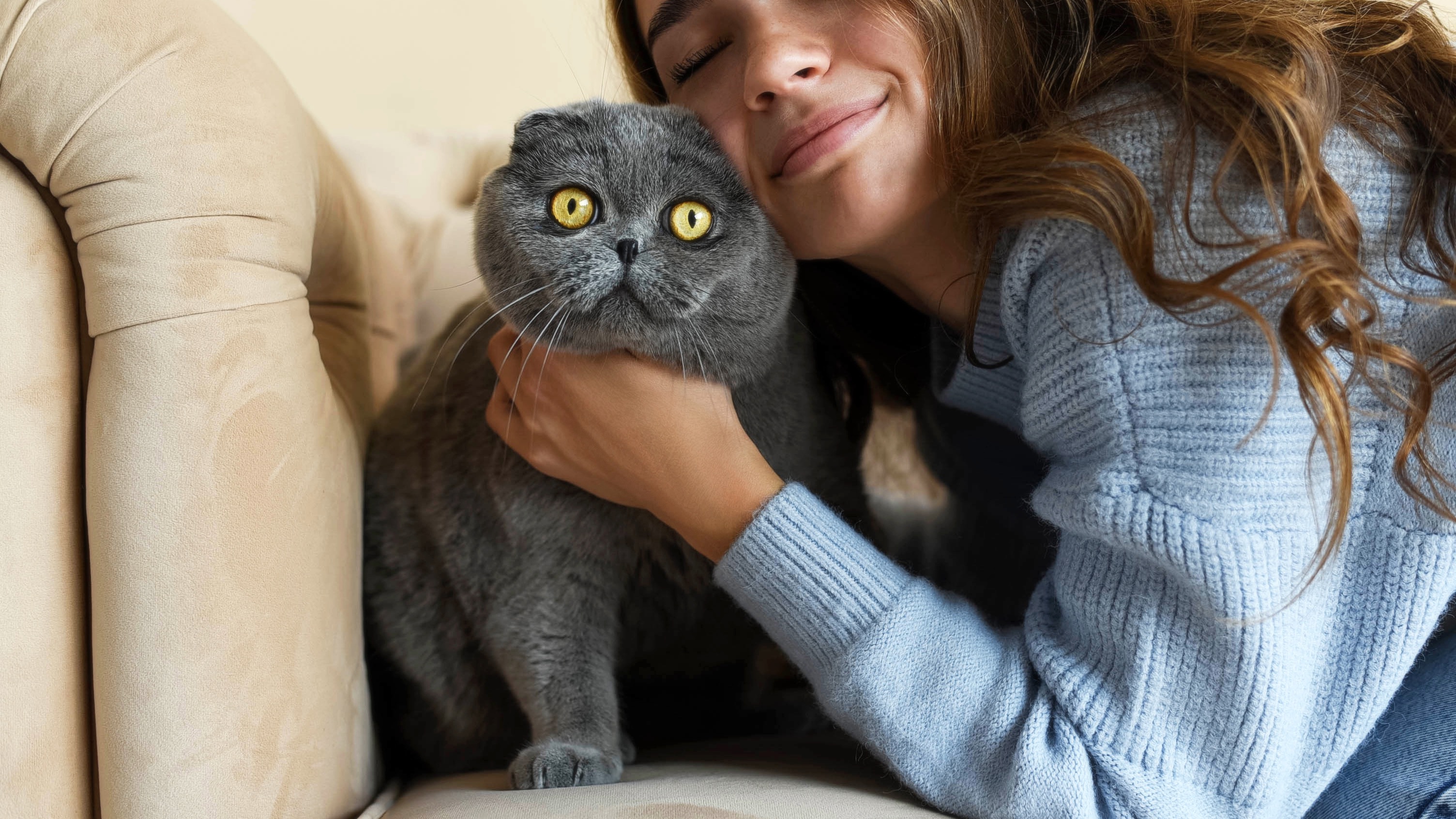
Not all cat breeds (or individual cats) like strangers. While some will hop on any warm and cozy lap they can find, others find new people in their environment stressful and unsettling - especially if there’s a child who won’t stop pulling their tail or an adult who wants to cuddle them regardless of their aloof body language. Never force your cat to engage if they don’t want to and if you know they don’t like new people, be sure to tell visitors to respect their boundaries.
19. Protect them from unwanted cats in their environment
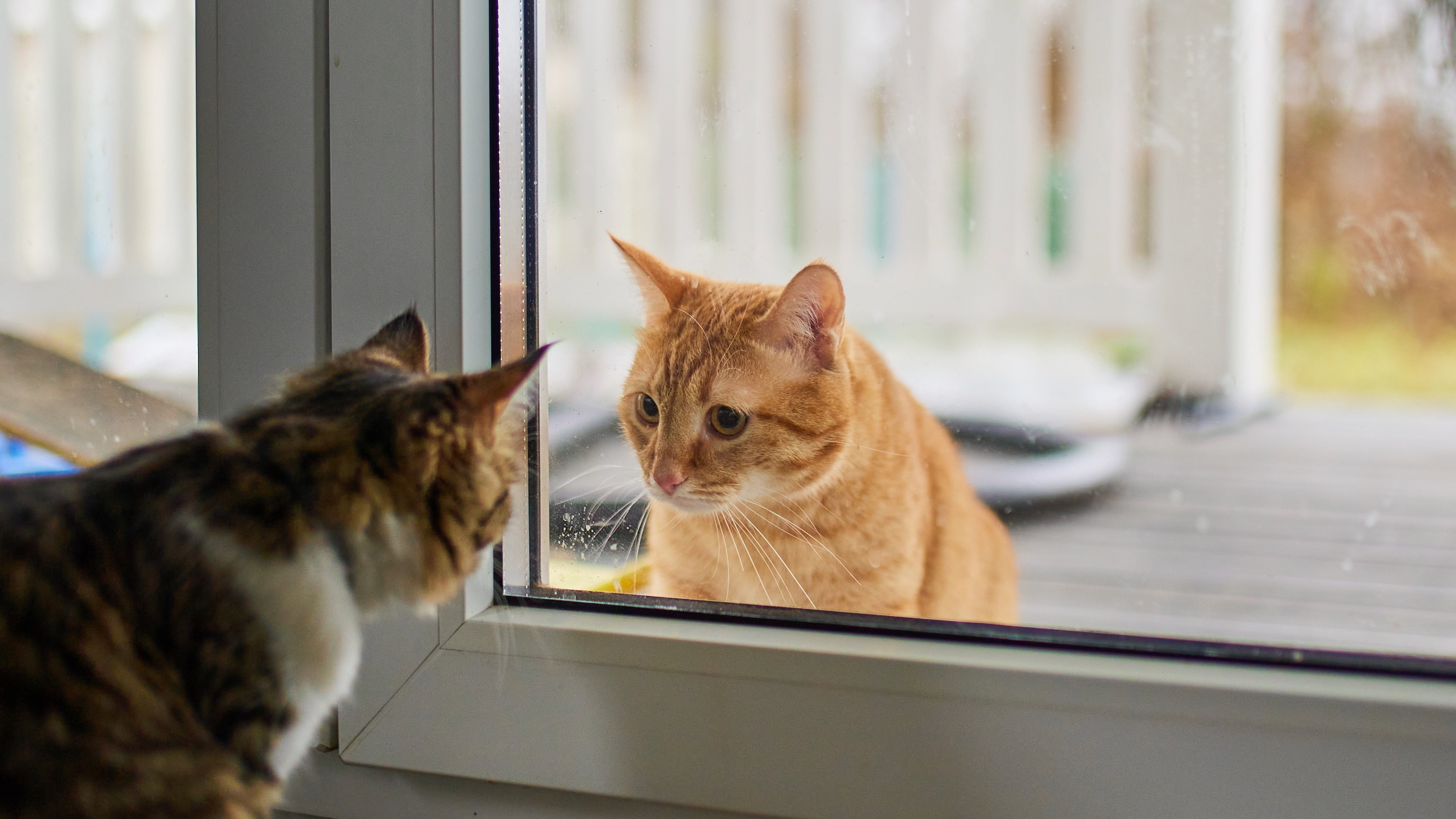
Cats are naturally territorial and while there are some super friendly little fluff balls out there that just want to say hi to every new kitty they meet, most don’t take kindly to other cats being in their space. As much as you may want to cuddle all the neighborhood cats that wander into your garden, it’s best not to encourage their visits — trust us, your feline friend will thank you for it.
20. Invest in a quality cat bed
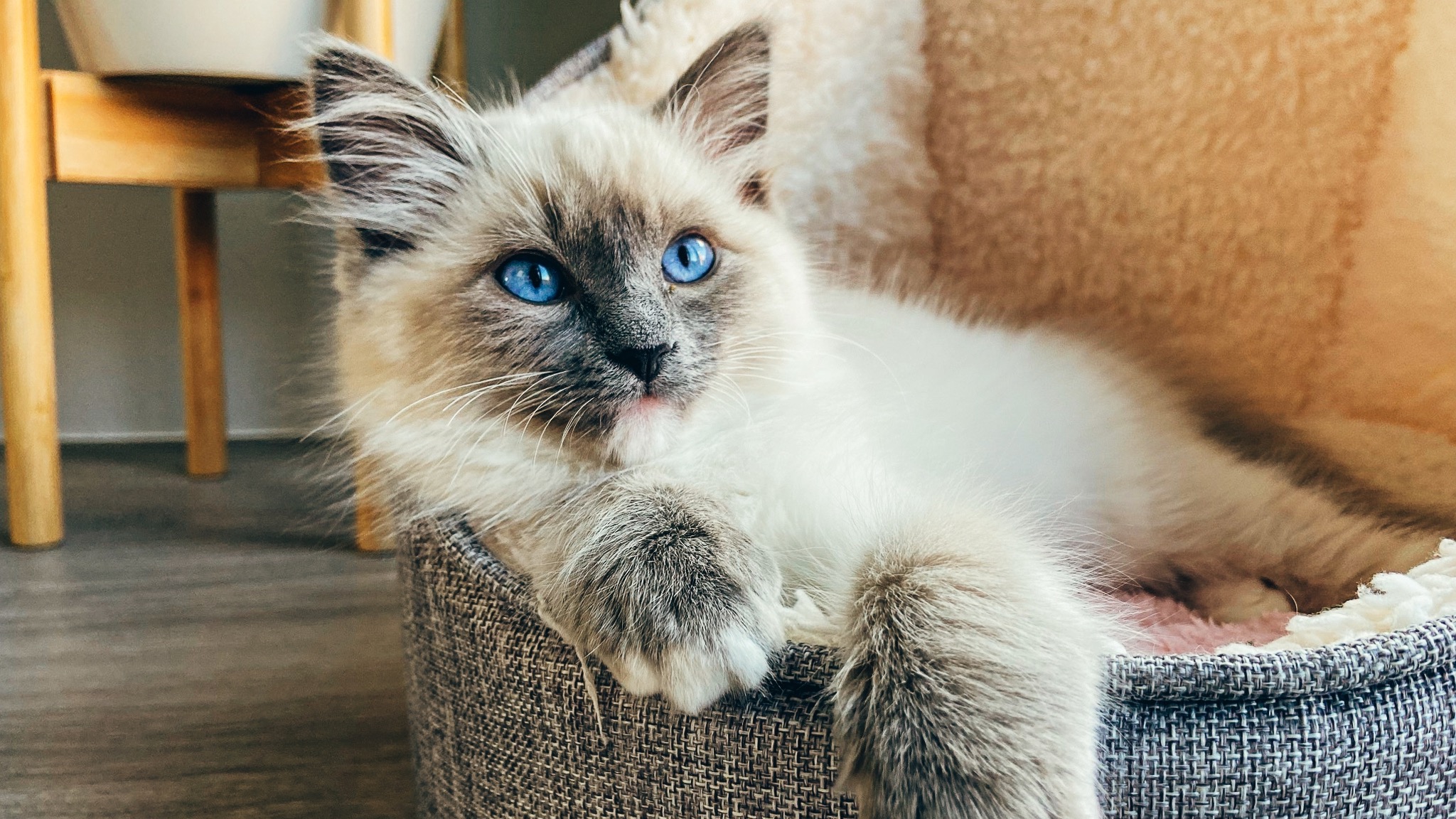
Nothing beats good sleep and since cats spend up to 16 hours a day sleeping, making sure they have the best cat bed you can find to snooze the day away in is super important. Why do cats sleep so much? Well, most of it is down to genetics. Cats are programmed to hunt at dawn and dusk when their eyesight is at its best and prey is abundant. Cold and wet weather is also a factor as this drastically reduces the chances of a successful hunting session. A quality bed will help your fur friend recharge and give them a cozy place to retreat to when they’re feeling stressed.
21. Play soft music or white noise
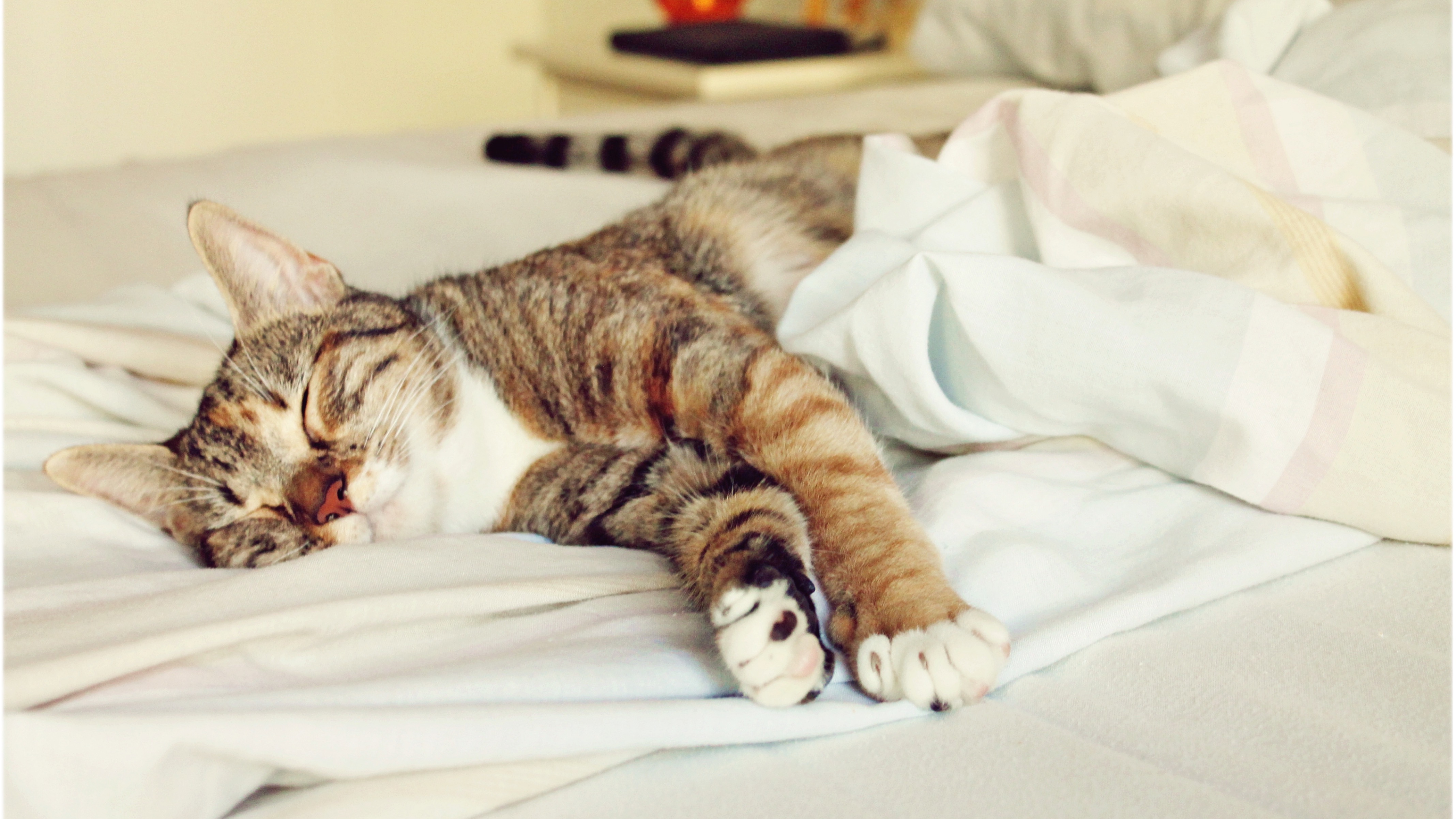
Many cats are sensitive to loud noises, such as the vacuum cleaner, food processor, and power tools, just to name a few. If your house is often noisy, try playing white noise or soft music composed specifically for cats (yes, such a thing exists!) as this can help reduce anxiety levels.
22. Discuss anxiety medication with your vet
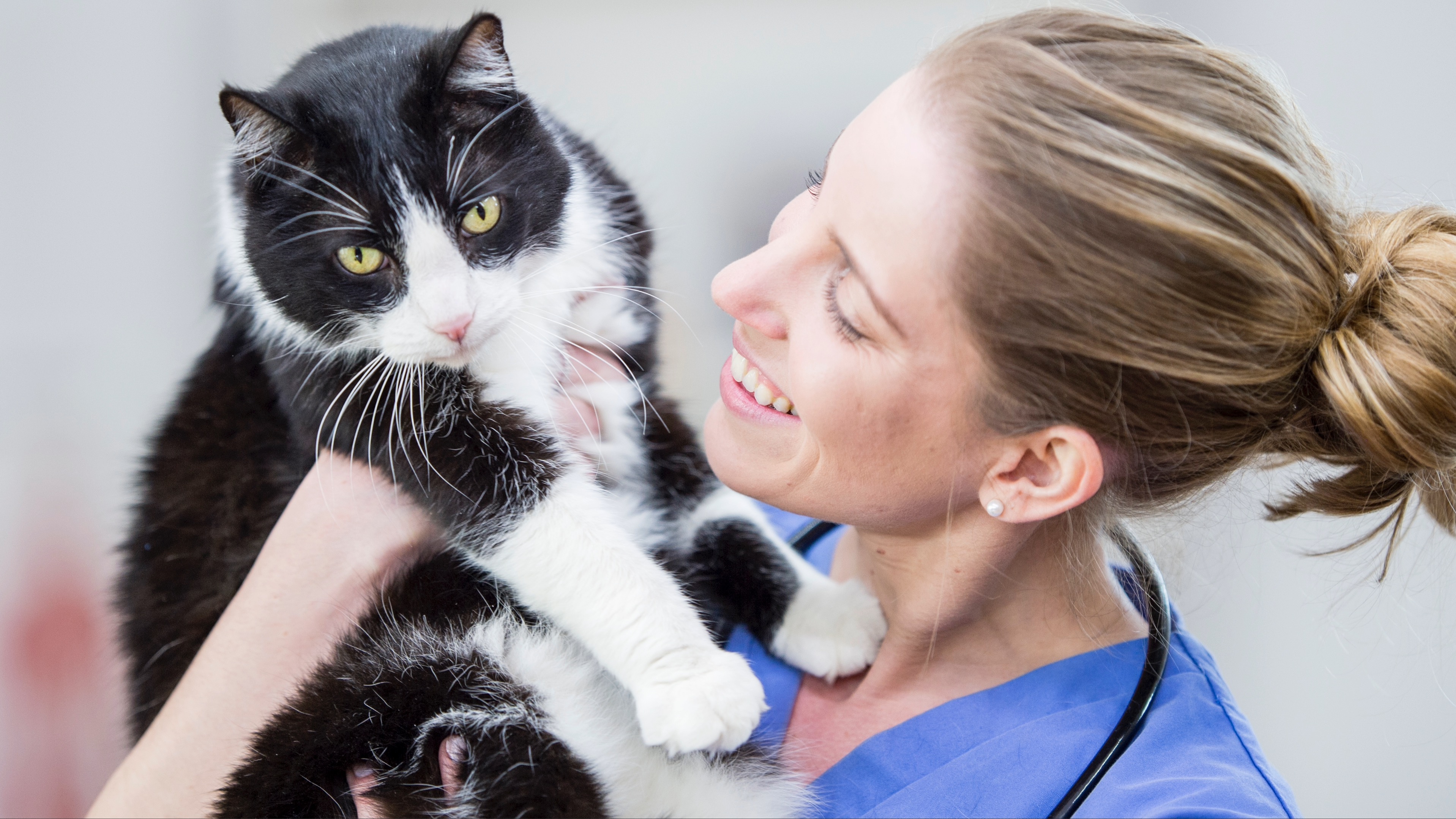
While this is best used as a last resort when you've exhausted other options, if you find your cat is experiencing stress or anxiety daily, we recommend speaking with your vet. In some cases, anti-anxiety medication used either on a short or long-term basis can prove very effective. Your vet will be able to advise on whether this might be suitable for your cat and discuss an appropriate dosage and schedule for administering the medication.
23. Make their carrier a stress-free place
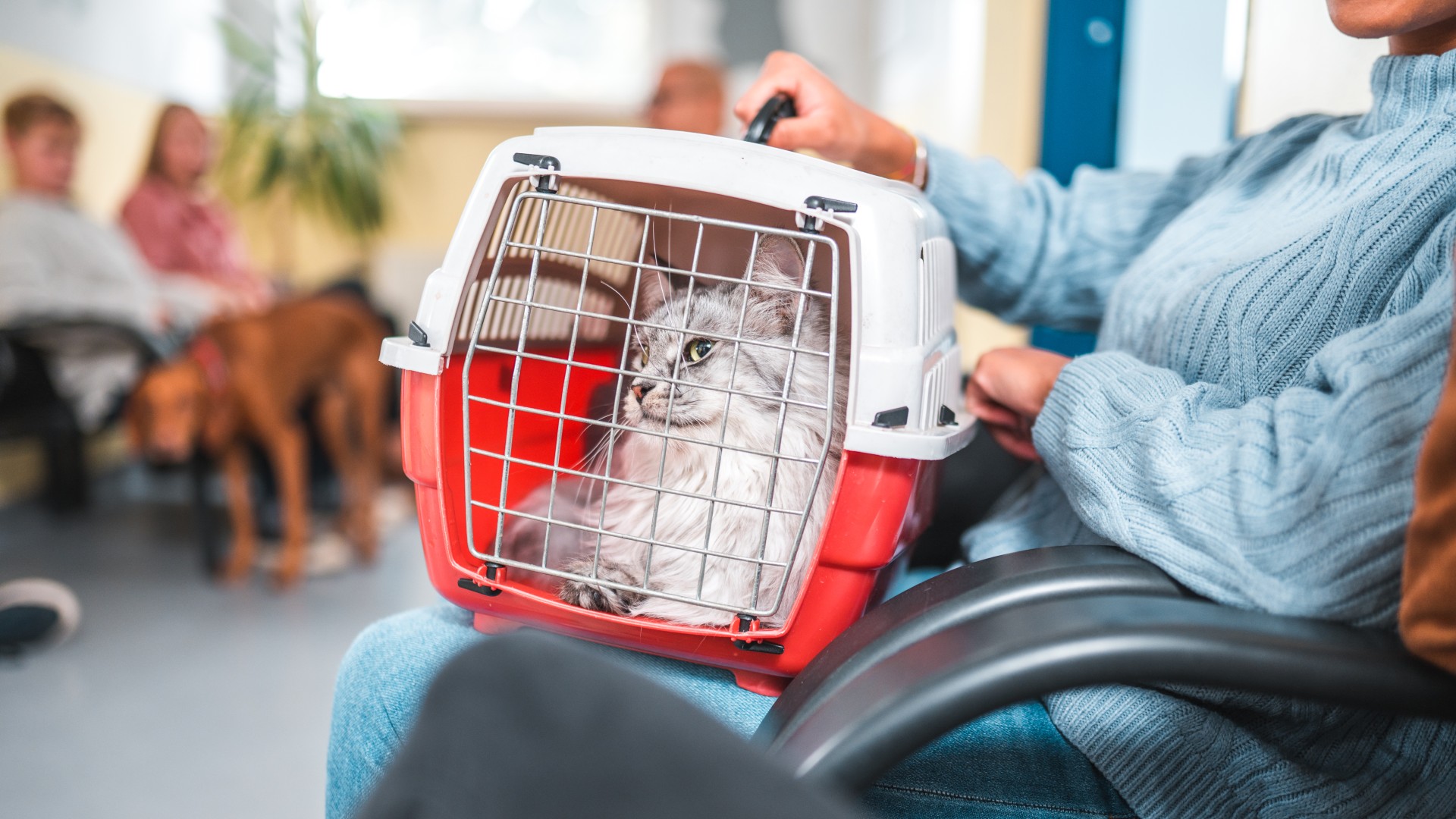
Once you know how to get a cat into a carrier safely, the next thing you want to do is work on making their carrier as soothing a space as possible. Many cats associate their carrier with negative experiences — going to the vet, the cattery or having to endure a long car trip — so lining it with their favorite blanket and one of their favorite toys, will help them to relax and feel safe. It is also worth investing in one of the best cat carriers to make them extra comfortable.
24. Maintain your cat's health

It’s easy to fall into the trap of thinking that your cat only needs to see a vet when they’re unwell, but cats require regular checkups just like we do. At the minimum, you want to ensure your cat gets a thorough health check at least once a year, although twice a year is even better if you can manage it.
25. Make mealtimes as peaceful as possible

Mealtimes can be a source of stress for some cats, particularly if they live in a busy or multi-pet household where other animals may harass them when they’re eating or try to steal their food. To enable your kitty to dine in peace, ensure they have a designated quiet and calm space where they can eat their meal and keep other pets and young children away from them while they’re eating.
26. Train with consistency

Can you train a cat? Absolutely! Training can be a wonderful way to provide your feline friend with that all-important mental and physical enrichment they need to stay happy and healthy. The key is to be consistent. If your cat isn’t allowed on your bed or the table during mealtimes, each human in your household needs to be consistent with that message. If one person lets the family cat on the kitchen counter and another one doesn’t, this sends stressful mixed messages.
27. Pay attention to your cat's body language

Cats, like humans, reveal what's going on inside of them through their body language, so becoming an expert on this will help you understand what your feline friend may be feeling at any one moment. If your cat is stressed, you may notice they crouch down, tuck their tail tightly into their body, tense their muscles, and have dilated pupils. They may also hide to help themselves feel safe.
28. Stay calm

Cat scratching the furniture? Peeing outside the litter box? Climbing the curtains? All of these behaviors can be so frustrating, but whatever is going on, it’s important to stay calm. Cats feel relaxed when they know what they’re getting each day — and that includes how their human parent shows up. If they trust that you’ll respond with love and kindness, they’ll feel much safer and less stressed around you, and your bond will remain strong.
29. Make sure they're microchipped
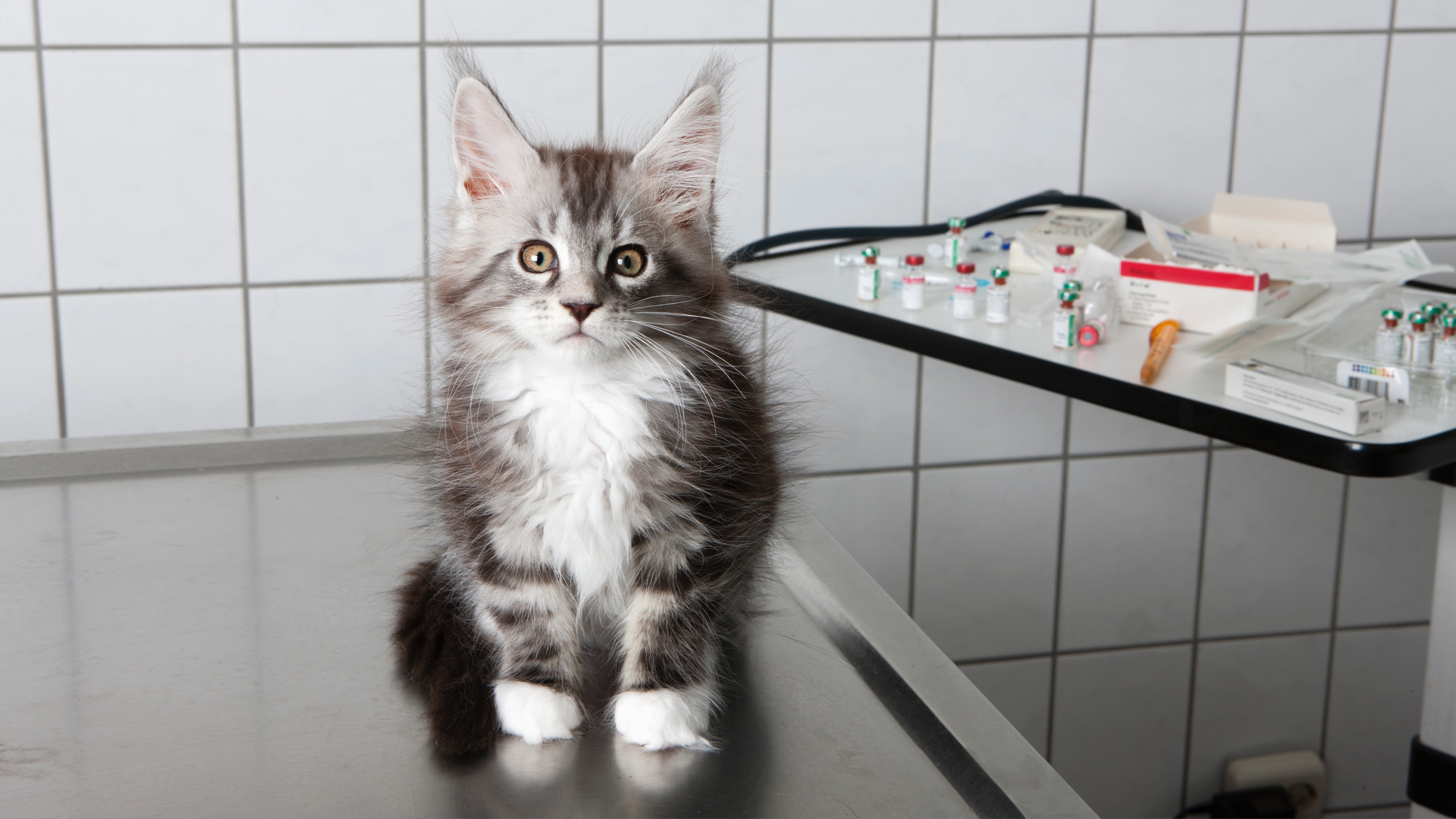
Alongside ensuring your feline is up-to-date with all their cat and kitten vaccinations, we highly recommend you get them microchipped. A microchip is a very small device that gets inserted under the skin between the shoulder blades. It contains vital identification information that any vet can gain access to, which means they can contact you immediately in the event you and your cat should become separated from each other. Being able to be reunited with you quickly will ensure your feline friend doesn’t endure prolonged stress.
30. Offer food-based activity toys
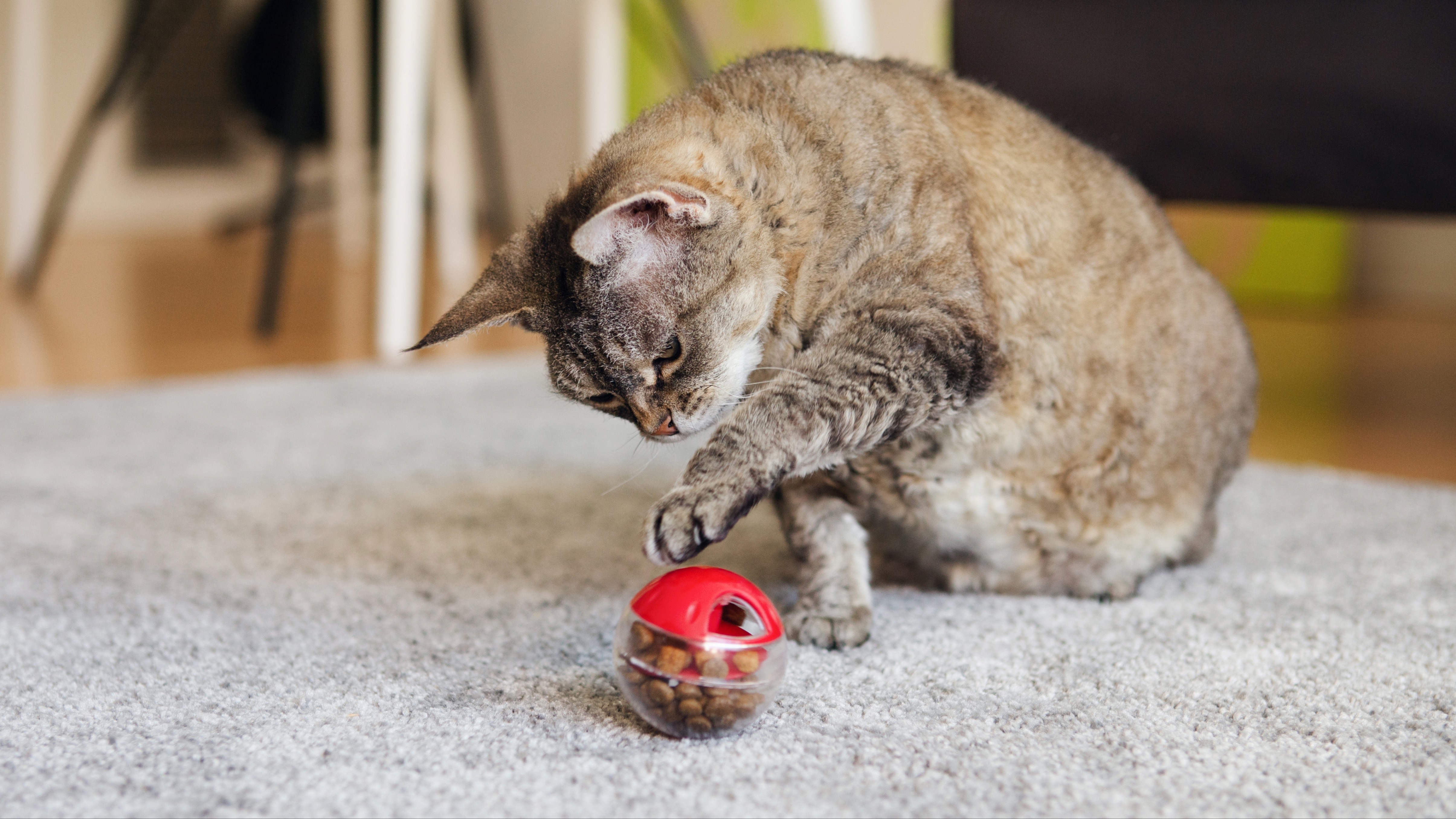
There are so many reasons to use a cat puzzle feeder toy, but high up the list is that they’re brilliant for reducing stress and anxiety. Cats can find change destabilizing, so having a food-based activity toy to use each day not only provides them with some predictability, it is also brilliant for capturing and holding their attention and giving their brain a good workout.
31. Install a cat flap
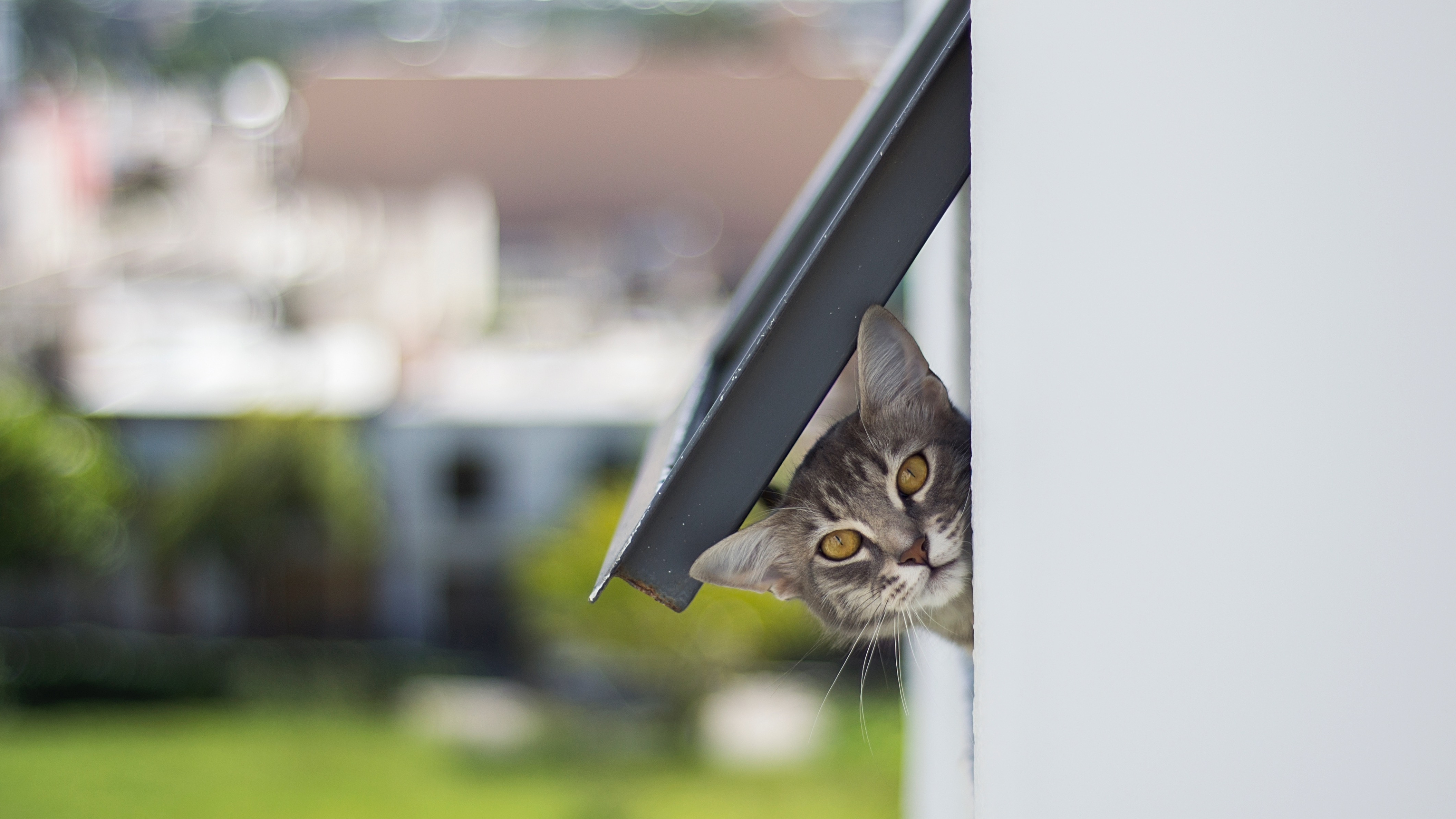
If you don’t already have the best microchip cat flap installed in your home, it’s well worth considering investing in one of these little beauties. There’s nothing more stressful for your cat than being cornered by another animal outside and not being able to flee to the safety of their home, or simply wanting to get back inside but having no way to do that. With a microchip cat flap, you can rest easy knowing your kitty can come and go as they please.
32. Talk with a behaviorist
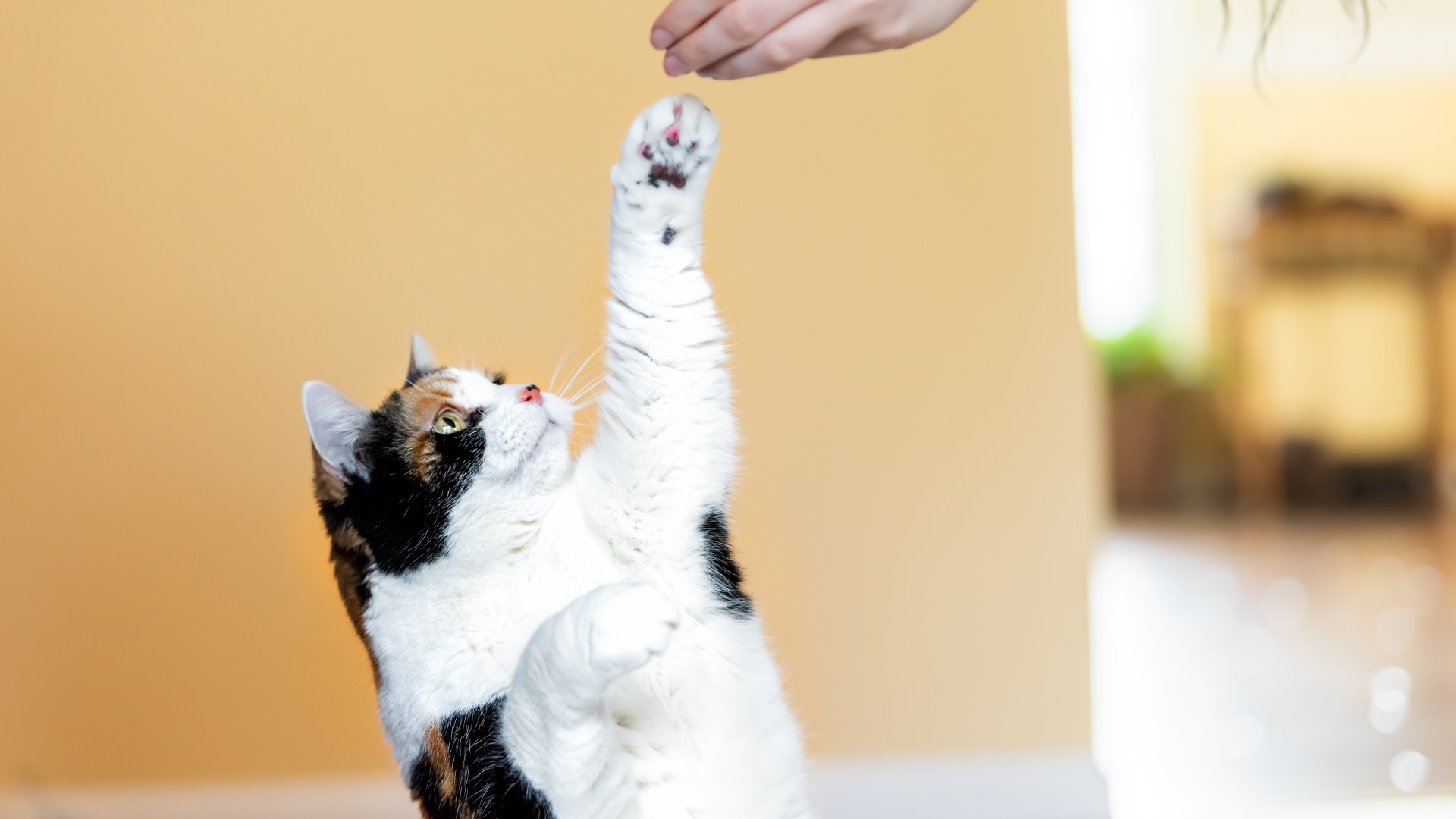
For those times when you’ve just tried everything to help destress your cat and nothing seems to be working, we highly recommend working with a qualified behaviorist. They will be able to assess your cat and come up with a plan of action that specifically meets their unique needs and situation. Plus, sometimes it simply helps to talk to someone to know that change is possible and that you’re not alone.
Read next: Signs your cat is stressed and how to keep a cat calm at the vet

Kathryn is a freelance writer who has been a member of the PetsRadar family since it launched in 2020. Highly experienced in her field, she's driven by a desire to provide pet parents with accurate, timely, and informative content that enables them to provide their fur friends with everything they need to thrive.
Kathryn works closely with vets and trainers to ensure all articles offer the most up-to-date information across a range of pet-related fields, from insights into health and behavior issues to tips on products and training.
When she’s not busy crafting the perfect sentence for her features, buying guides and news pieces, she can be found hanging out with her family (which includes one super sassy cat and a kitten), drinking copious amounts of Jasmine tea and reading all the books.
She has written for a range of publications, including Fit&Well, Top Ten Reviews, LiveScience, Goodto, and Product Hunt.
